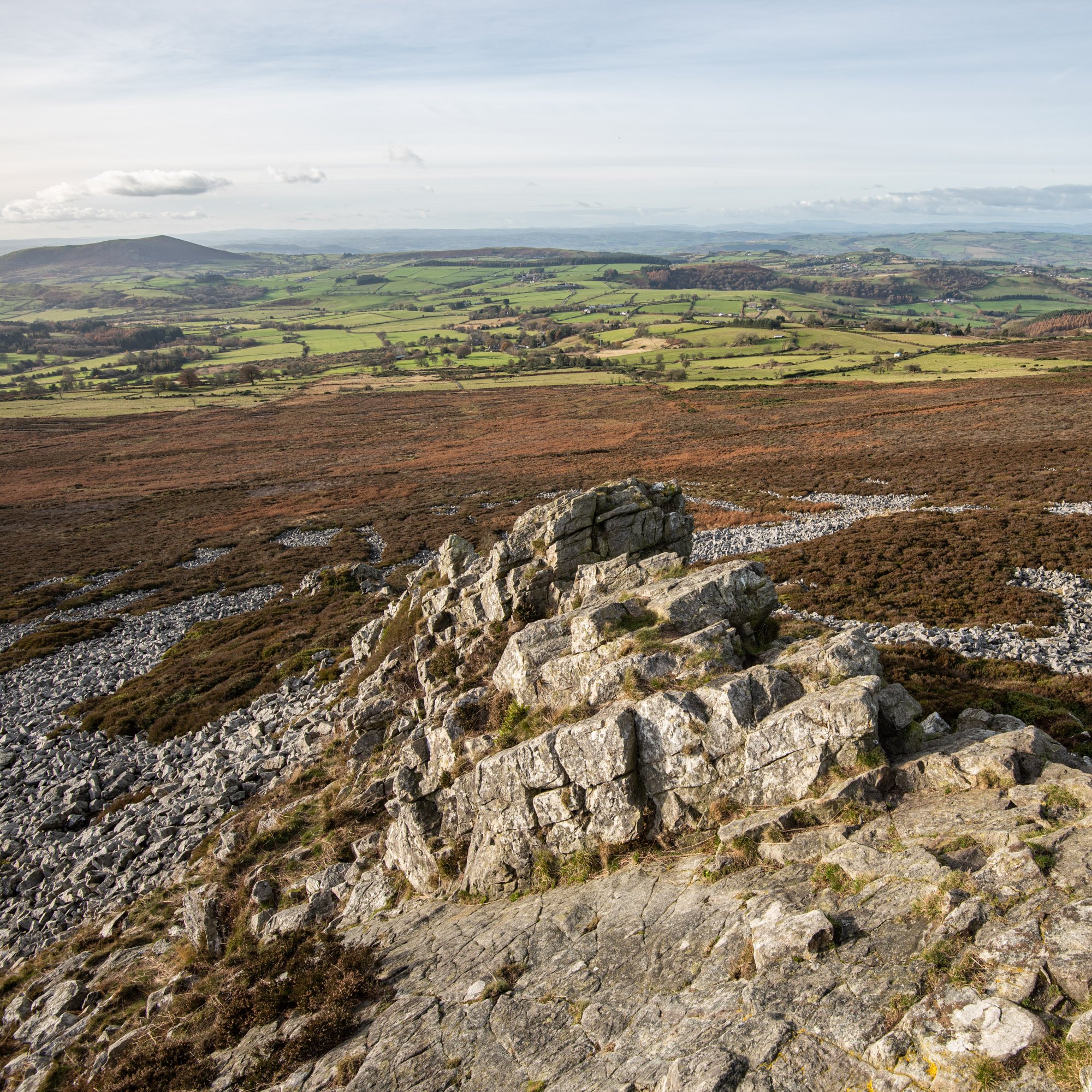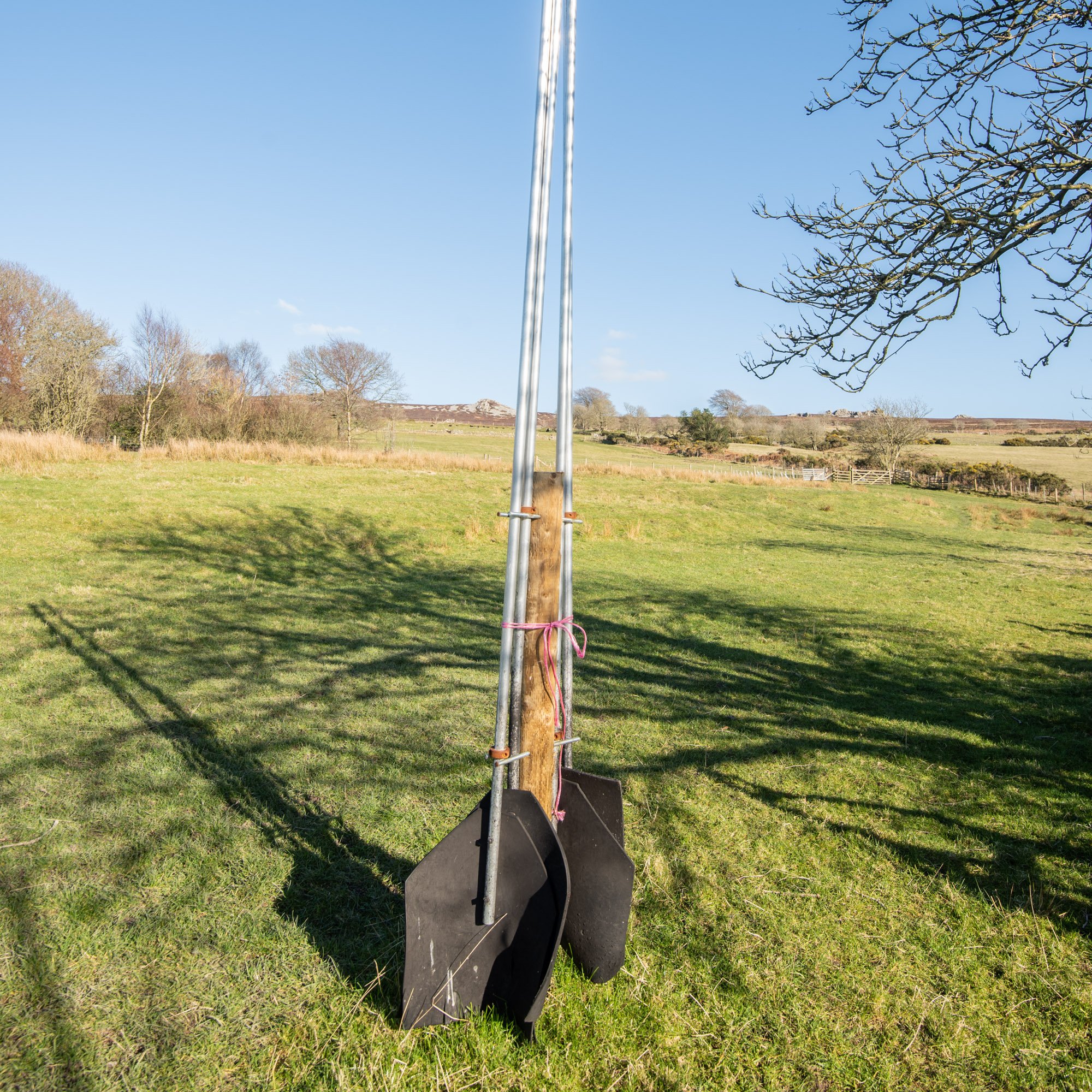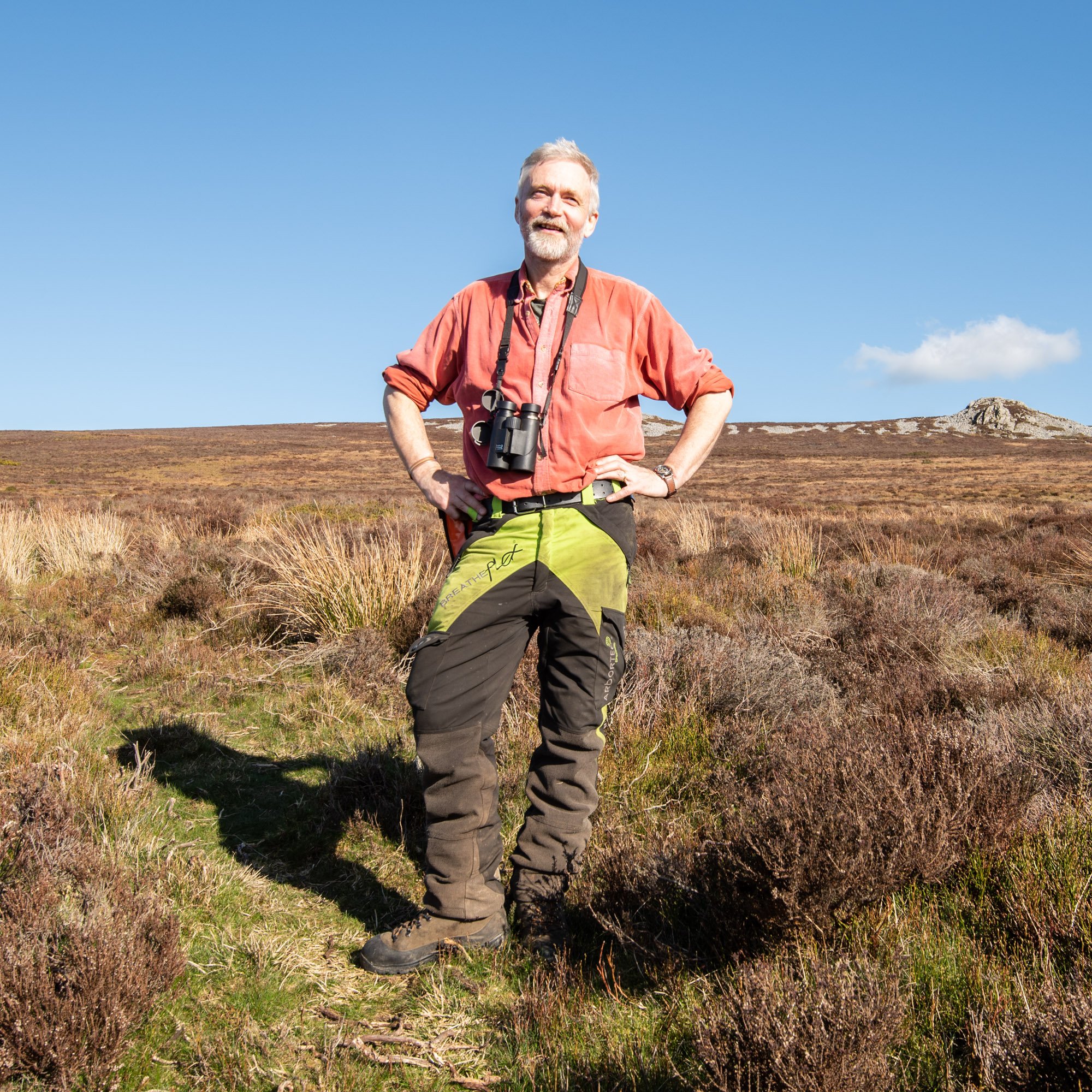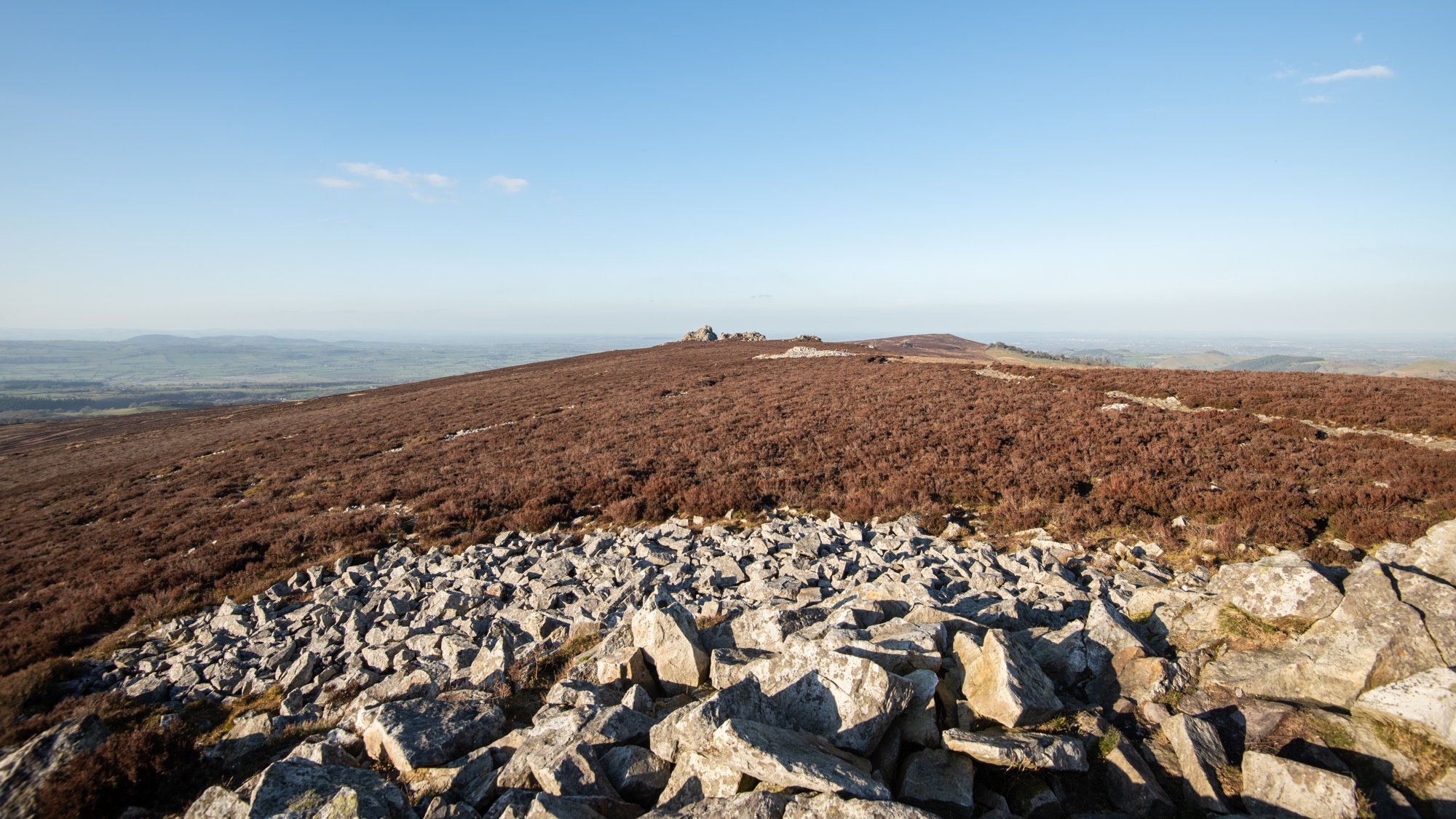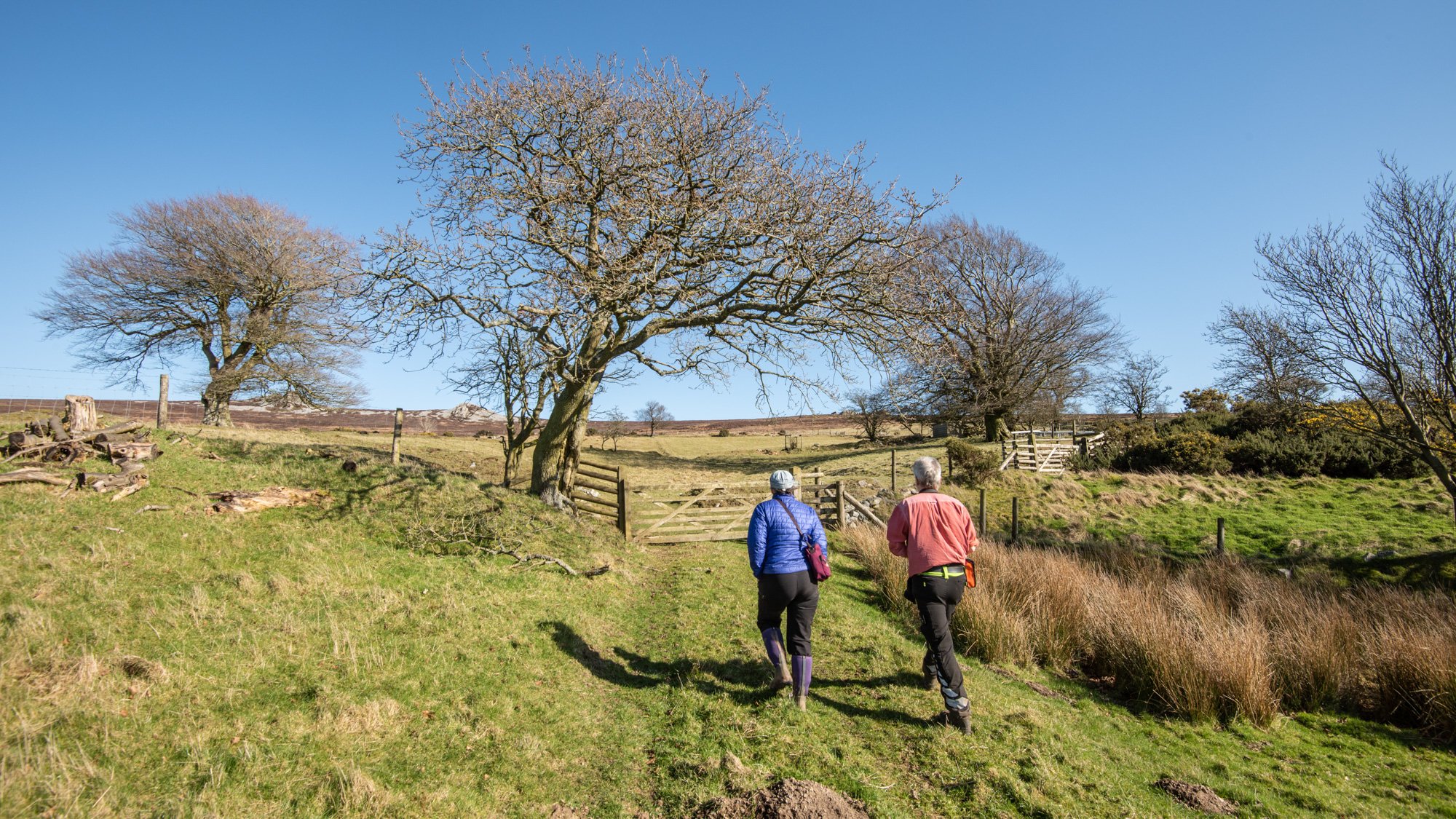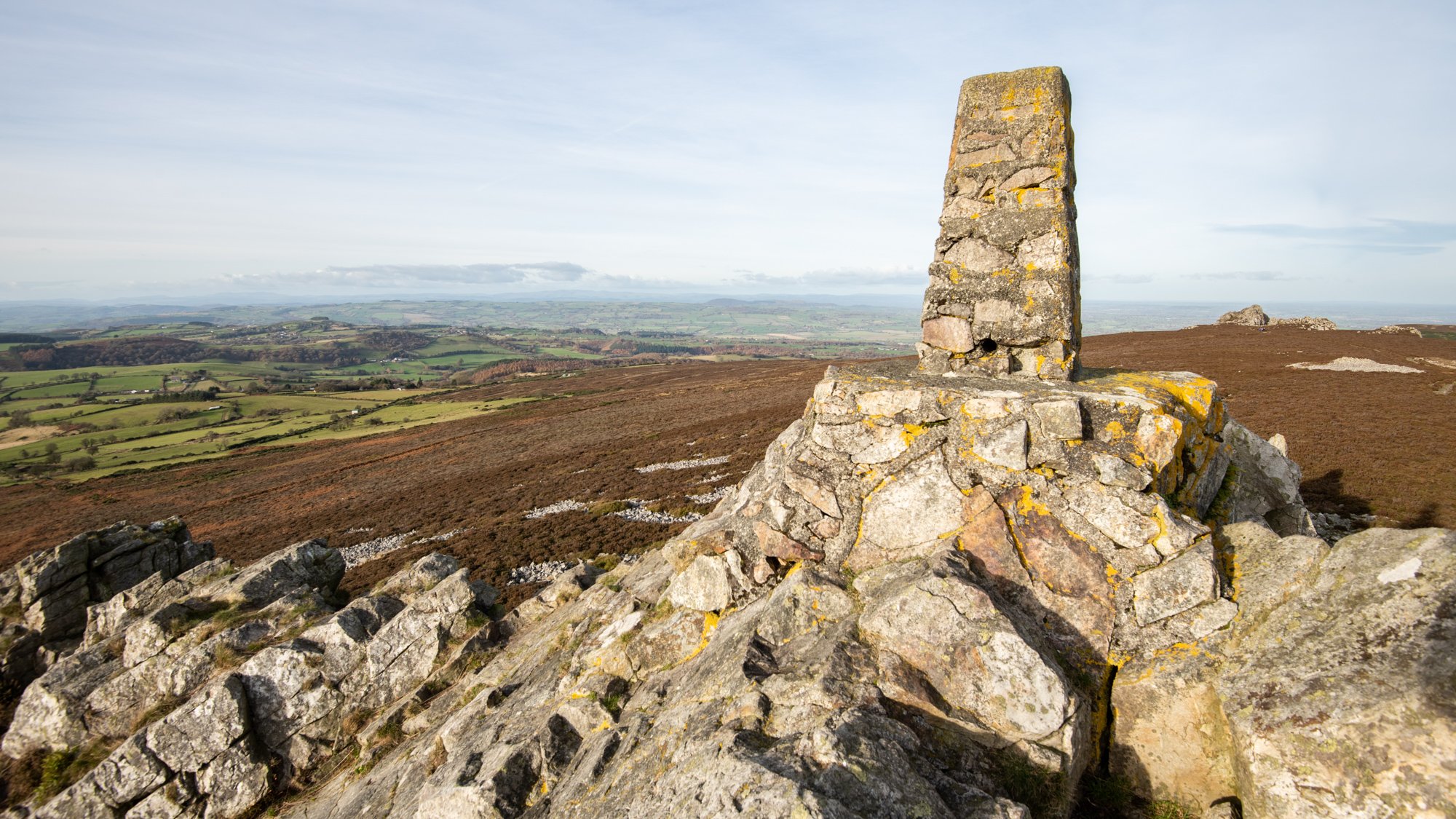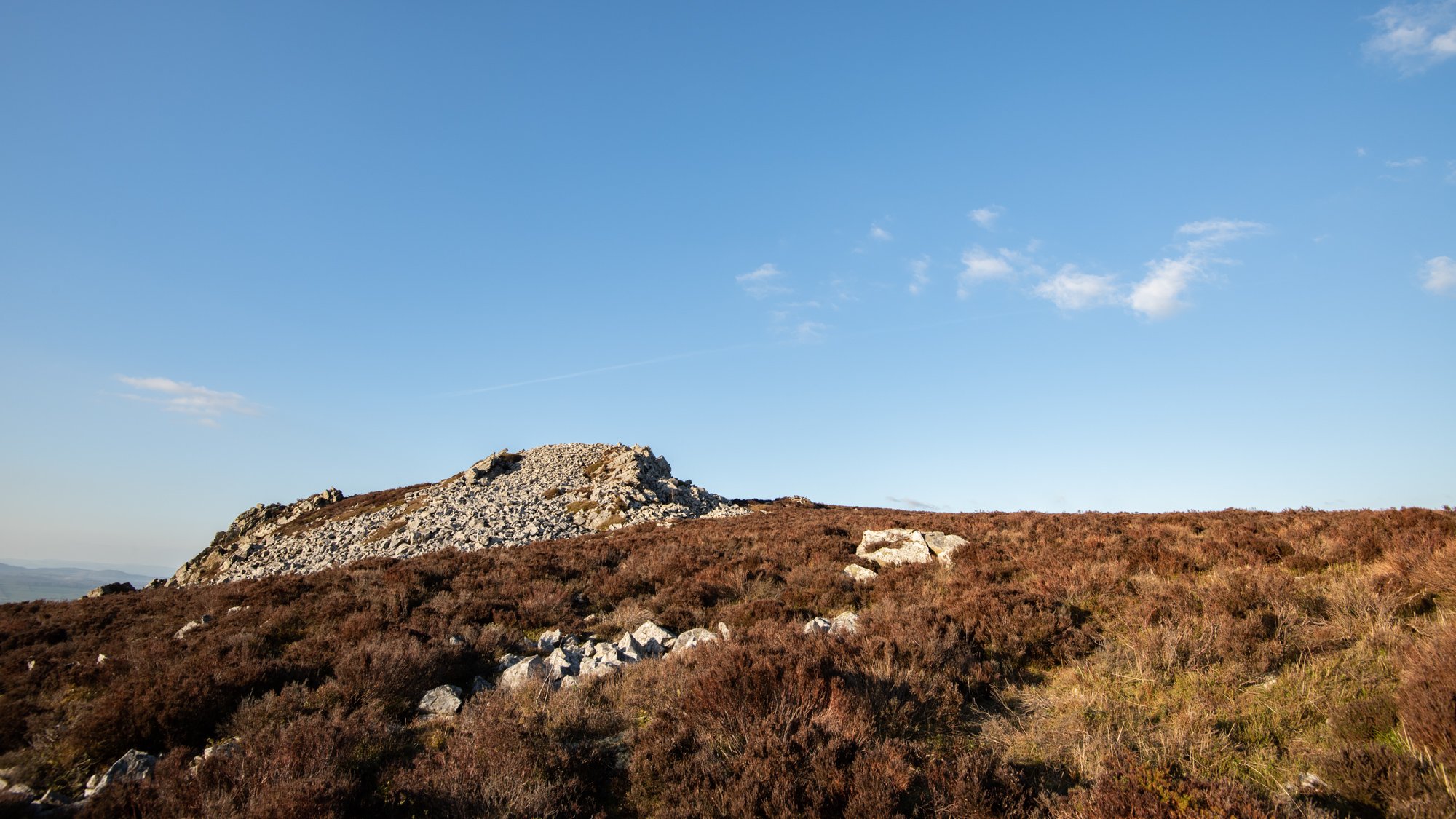Simon Cooter : Senior Reserves Manager, Stiperstones
Simon Cooter
Senior Reserves Manager, Stiperstones National Nature Reserve, Shropshire Hills.
‘What’s gone on historically has left a very special site. There’s heathland on the hill, and then really nice acid grassland, with a sea of yellow mountain pansies in the summer. And then there are oak woodlands and what in Wales is called ffridd, which is a sort of wood pasture with gorse, bracken, rowans and scrub. It’s full of birds and wildlife.’
Simon has been working as the senior reserve manager on Stiperstones since 2010. He knows the area well, of course, and really loves its uniqueness and the variety of habitats, and the history behind it. ‘What we see now is a result of historical management. We don't know how long it's had human settlements. There are Bronze Age funeral sites and burial tombs on the top, and an Iron Age Hill fort on the north. There would have been grazing animals then, probably cattle, and I'm sure they would have cleared trees and even burnt heather maybe, for grass. Then later on it was managed as a grouse moor and when there were lead mines, people were grazing animals on the hill.’
What’s gone on historically has left a very special site. ‘There’s heathland on the hill, and then really nice acid grassland, with a sea of yellow mountain pansies in the summer. And then there are oak woodlands and what in Wales is called ffridd, which is a sort of wood pasture with gorse, bracken, rowans and scrub. It’s full of birds and wildlife.’
Among the birds to look out for are meadow pippits, skylarks, cuckoos and even nightjars. These birds need a population of insects to feed upon. Some of the area’s special insects include: Emperor Moths and Pearl Bordered Fritillary Butterflies. ‘Light touch grazing on Stiperstones is an important element of management,’ says Simon. ‘We've got crowberry, bilberry, lots of different dwarf shrubs, and we've got three species of heather on here. If it’s not grazed for long enough, then the bramble takes hold and it gets harder to graze, and rowans can spread, and then we have to go in and manage it. It's so much easier when your grazing animals are doing the management.’
The recent decision to employ a contract shepherd to encourage sheep to move to more areas of the hill might help to redress the balance. ‘We've got the right number of stock on, it is just that there are parts of the hill where they struggle to get to, and it's becoming more of a problem with a warming climate: most of the hill has only got natural water sources from springs and they're starting to dry up in the summer, more and more so. And it's summer grazing, we're looking at, because in the winter, it's just too inclement up here.’
“‘The commoners know the hill very well. They know when animals can be put out on the hill, when they have to be brought back off, they know where the water is. It’s knowledge that’s been passed down from generation to generation. I think that is very important for the continuity of management, and for conservation of this special site.’”
The continuation of commoning is important, says Simon. ‘It was actually the common that helped create the nature reserve. Forty years ago, it was destined for forestry. A preservation society formed by local people around the Stiperstones objected to it; and then the potential for common rights to be registered came along. The commoners know the hill very well. They know when animals can be put out on the hill, when they have to be brought back off, they know where the water is. It's knowledge that's been passed down from generation to generation. I think that is very important for the continuity of management, and for conservation of this special site.’
Simon has travelled and worked in many places over the years, but feels settled here now. There aren’t many better places to work. ‘The nice thing is the variety. One day, we can be talking to people, another, we might be repairing bird boxes, or cutting down a few trees for making dams for rewetting, or giving a talk or creating interpretation panels. I might be out fencing, or chain-sawing or we could be burning the heath.’
‘I love just being outside in wild country, really. And I've always wanted to leave the world a bit better than I found it. I don't know if I'm successful in that, but it's an enjoyable job and it’s not hard to get out of bed in the morning to come to work at a place like this.’
“I’ve always wanted to leave the world a bit better than I found it. I don’t know if I’m successful in that, but it’s an enjoyable job and it’s not hard to get out of bed in the morning to come to work at a place like this.”


